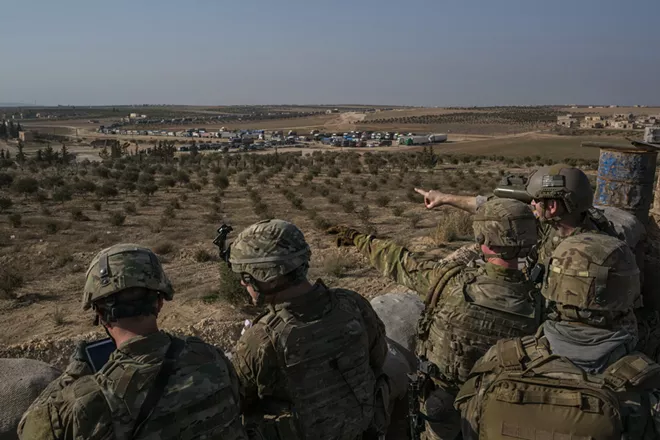
The Syrian army entered the town of Tel Tamer in northeastern Syria, the state news media reported Monday, soon after the government of President Bashar Assad forged an alliance with the Kurdish forces that control the region.
The Syrian government had been almost entirely absent from the northeast since it withdrew or was chased out by armed rebels in the early years of Syria’s civil war. The Syrian Democratic Forces, a Kurdish-led militia that worked with the United States to fight the Islamic State group, soon became the region’s overarching political force.
Although the Syrian Kurds did not declare Assad’s government an enemy, the Syrian president looked askance at their goal of self-rule and vowed to retake all his country’s territory. He had no way to do so, however, especially with U.S. troops remaining in the area.
President Donald Trump’s decision last week to move those troops out of the way of a Turkish incursion gave Assad an opening, and his forces began to fill it Monday. Trucks drove large numbers of Syrian soldiers into the area to take up positions.
If Syrian government forces can reach the Turkish border to the north and the Iraqi border to the east, it would be a major breakthrough in Assad’s quest to reestablish his control over the whole country.
Syrian government forces also entered the town of Ain Issa on Monday, a day after it was briefly overrun by Turkish-led troops. Around 500 Islamic State sympathizers took advantage of the mayhem and escaped detention, local officials said.
President Recep Tayyip Erdogan of Turkey said Monday his troops would continue to support an invasion of parts of northern Syria, despite the return of Syrian government forces.
Also Monday, foreign ministers from all 28 European Union member states agreed unanimously to stop selling arms to Turkey, the first time the bloc has reached such a decision about a NATO ally.
In a joint statement from the foreign ministers, the bloc condemned Turkey’s incursion into northeastern Syria.














